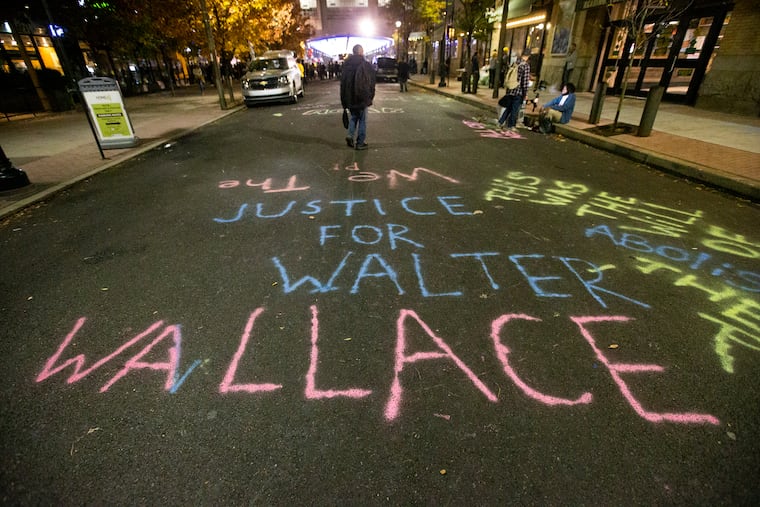This Black History Month, help us be the generation that ends systemic racism | Opinion
Our Philadelphia-grown blueprint for change will work—because it has to.

“One voice can make an impact. Many can change history.” This tagline from the 2019 Voices of the Civil Rights Movement installation when it opened at Chicago’s DuSable Museum of African American History is as relevant to today’s turbulent times as it was in the ‘50s and ‘60s.
Indeed, many voices have risen in response to recent racial injustices. They say the names of George Floyd, Breonna Taylor, Walter Wallace Jr., and others killed by police, which led to calls for reform. They speak of ongoing pandemic-related disparities in virus prevalence, hospitalization, deaths, testing, treatment, and vaccination. They fear how the economic plunge and volatile political landscape topped by the insurrection at the Capitol will change us all. But there’s something different about these voices for social justice than in the past. Today we see collective outrage. Social media echoes with desire for knowledge and understanding across communities. We see among civic leaders and individuals that this is a movement, not a moment.
» READ MORE: A Marshall Plan for Black America is the only way to repay this country’s moral debt | Opinion
We’ve heard it among our own stakeholders in Philadelphia. Now is our chance to lift up this groundswell of voices for conversation that leads to tangible change.
In an essay on Black History Month, Laura Williamson, a senior policy analyst at “think-and-do” tank Demos, wrote: “When we heed the lesson offered by Black people throughout history — to abandon the ahistorical approach and learn the true history of our movements — not only do we uncover strategies and tactics directly relevant to our contemporary struggles for justice, we also draw hope that the future can be different and understanding that it is our organizing today, rooted in lessons from history, that will make it so.”
We are doing just that by “setting a table” at our Ending Racism partnership. All members of our community, from grassroots leaders to regional powerbrokers, are welcome and encouraged to share ideas for a more just and equitable society. Welcome to share their experiences with racism and its impact on their and others’ lives. Our resurgent movement for racial justice seeks opportunity, equality, and representation for all.
It’s time to turn on its head the notion that you can have opportunity and equality only if you’re in the “right” group. The divide of “us” and “them” does not fulfill the promise of America as a possibility for everyone. We offer a restorative approach to achieving our Founders’ vision of justice for all. Our table has room for everyone.
We understand that there are no hard and fast propositions to undoing deep-rooted racist systems and institutions in our country. We are not so naïve to think this process will be quick or easy. We are not confused. We know race-based inequities are foundational to life in America. We also know that now, on the momentum of a movement, we have a historic opportunity to level the playing field, eliminating barriers and unfair processes. Specifically, we’re looking to accelerate change across community-identified areas where systemic, embedded racism and implicit bias continue to harm our society in six key areas: education, jobs, housing, health care, criminal justice, and art and culture.
“We are not so naïve to think this process will be quick or easy. We are not confused.”
Key to turning a collection of conversations into transformative change is a framework structured around a clear vision of outcomes. Like any well-constructed business plan, it must be implementable. We all need to state measurable goals and who is accountable for them.
As we engage in this imperative dialogue through a series of roundtables, which began in January, we seek to first create a basis for healing. Then, our collaborative work of rebuilding begins.
In our model, the commonalities and themes emerging from our shared stories lead to coalition-building and concrete, actionable commitments from institutions and systems. On the initiative level, this includes tackling health inequities so that where you live doesn’t dictate how long you live. On a broader level, it means eradicating systems of oppression and limitation and to create a new society. It means offering a more robust economic model that creates a bigger pie by, for example, spending less on incarceration and more on education, rather than just dividing up the current pie more equitably.
» READ MORE: They said his name: How George Floyd changed a city 1,100 miles away
We are in an unprecedented time of uncertainty and despair. Yet there is hope for a reckoning. Historians see President Biden’s early policy focus on racial equality — not seen since Lyndon Johnson — “as a unique opening” for change, as the New York Times reported.
Black History Month is a call to remember the struggles of the past. It is also a reminder that we have been here before. Promises to change and do better have been made in previous generations. What will make this time different is a commitment to, as the young people say, walk it like we talk it.
More seasoned people might say talk is cheap. While we value the bedrock of our work being grounded in deep conversation, we will not end racism without changes in behavior. Help us be the generation to end racism once and for all by joining at http://endingracismpartnership.org/. It’s time for Philadelphia to pledge to close the gap between the America promised to us, and the one we’re living in now.
Sharmain Matlock-Turner is president and CEO of the Urban Affairs Coalition. Stephen P. Fera is executive vice president of public affairs at Independence Blue Cross. The Rev. Dr. Mark Tyler is pastor of Mother Bethel AME Church.